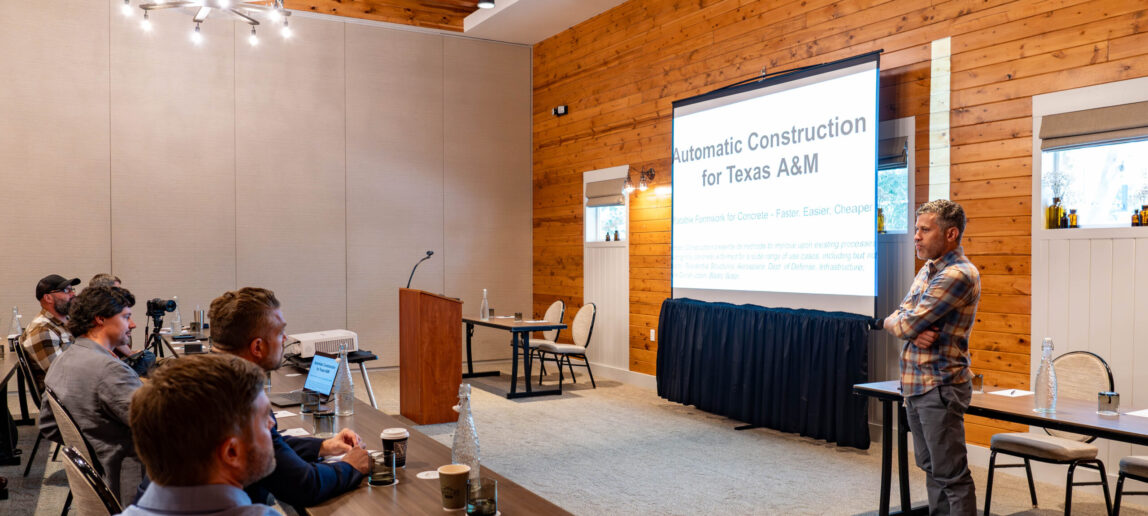International start-ups compete at Texas A&M’s first Construction Innovation Competition
Texas A&M Innovation and the College of Architecture hosted the inaugural Construction Innovation Competition at Cavalry Court on Thursday, September 12, 2024. The competition featured multiple international start-ups who competed for prize money in this presentation pitch event.
The university partnered with the Society for Construction Solutions (SCS) to highlight emerging start-ups and entrepreneurs in the architecture-engineering-construction (AEC) industry.
The contest kicked off with introductory speeches from Pete O’Neill, chief innovation officer and associate vice chancellor of Texas A&M Innovation and Patrick Suermann, Ph.D., interim dean of the College of Architecture.
Pete O’Neill discussed the background of the competition and the university’s involvement.

What is Texas A&M Innovation involvement with the competition?
“We support growing innovative and entrepreneurial culture and ecosystem, around Texas A&M, around College Station and events like this are part of that.”
What specifically about this event makes Texas A&M want to promote it?
“I think start-up companies and the entrepreneurs that are leading the start-up companies embody innovation. We certainly have lots of innovation that is embodied in research and researchers. But to bring these companies to College Station and connect them with the school here and it’s just another ingredient.“
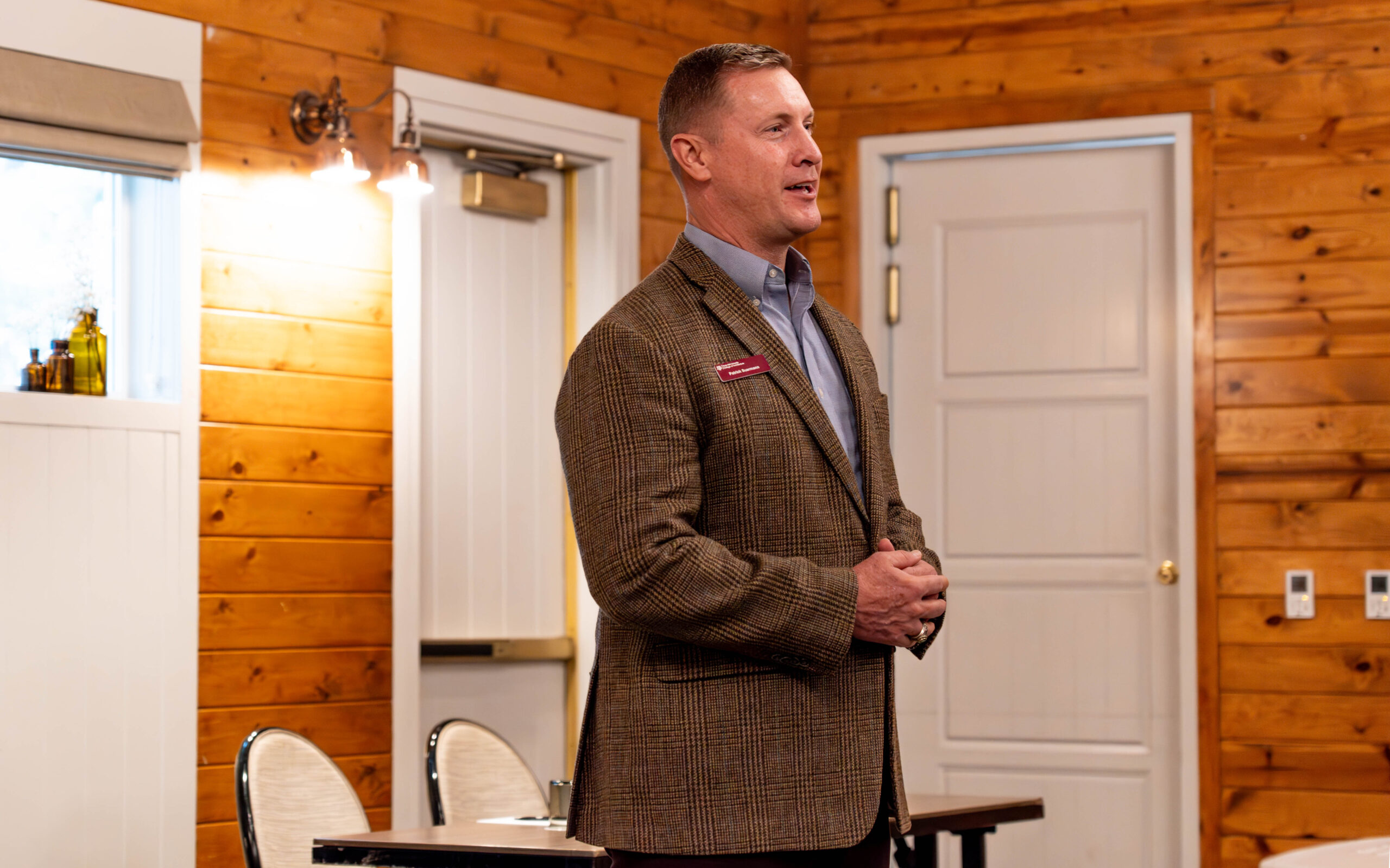
Curtis Rodgers, founder of the Society for Construction Solutions, introduced himself and assisted with the delivery of presentations.
The purpose of the competition was to inspire future entrepreneurs, students and academics about solving an industry problem through research and innovation. The competition also celebrated the entrepreneurial spirit.
Mark Pivac, co-founder and CTO of FBR, delivered a keynote address detailing his company’s automated bricklaying technology from Perth, Australia. He delivered exciting news about his company doing a demonstration program in the United States. Pivac highlighted several key benefits of the program, including improved speed, accuracy, safety and waste reduction.
Next, there was a round of judge/intrapreneur introductions from six different individuals. The judges represented Comfort Systems, VESTAS, Metropolitan Transit Authority of Harris County, Knauf, Fluor, and JB Pinnacle.
The Competitors
Automatic Construction
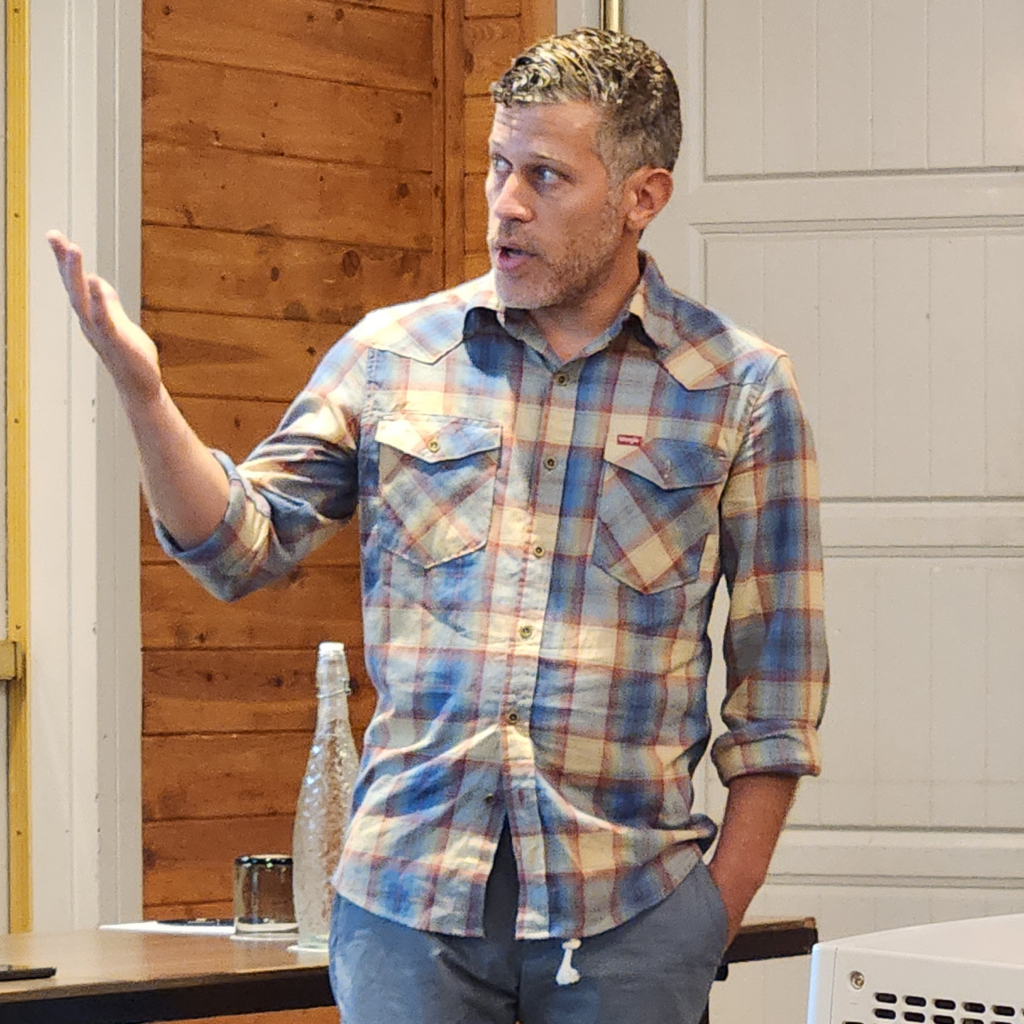
Automatic Construction – Tyler Robins, Co-Founder
Tyler Robins, co-founder of Automatic Construction, has developed a method for building with concrete using inflatable formers to shape structures. The system harnesses air pressure to support the structure, then pumps concrete into the form creating structures in record time.
“Our system excels in hard-to-reach places…instead of building a road and bringing in a crane to install culverts, we use a 200-foot hose connected to a former, which can be transported by pickup truck from the existing road to the site. Once it’s hooked up, the job is essentially complete. That’s where the major savings come in.” – Tyler Robins
Friendly Vending Service
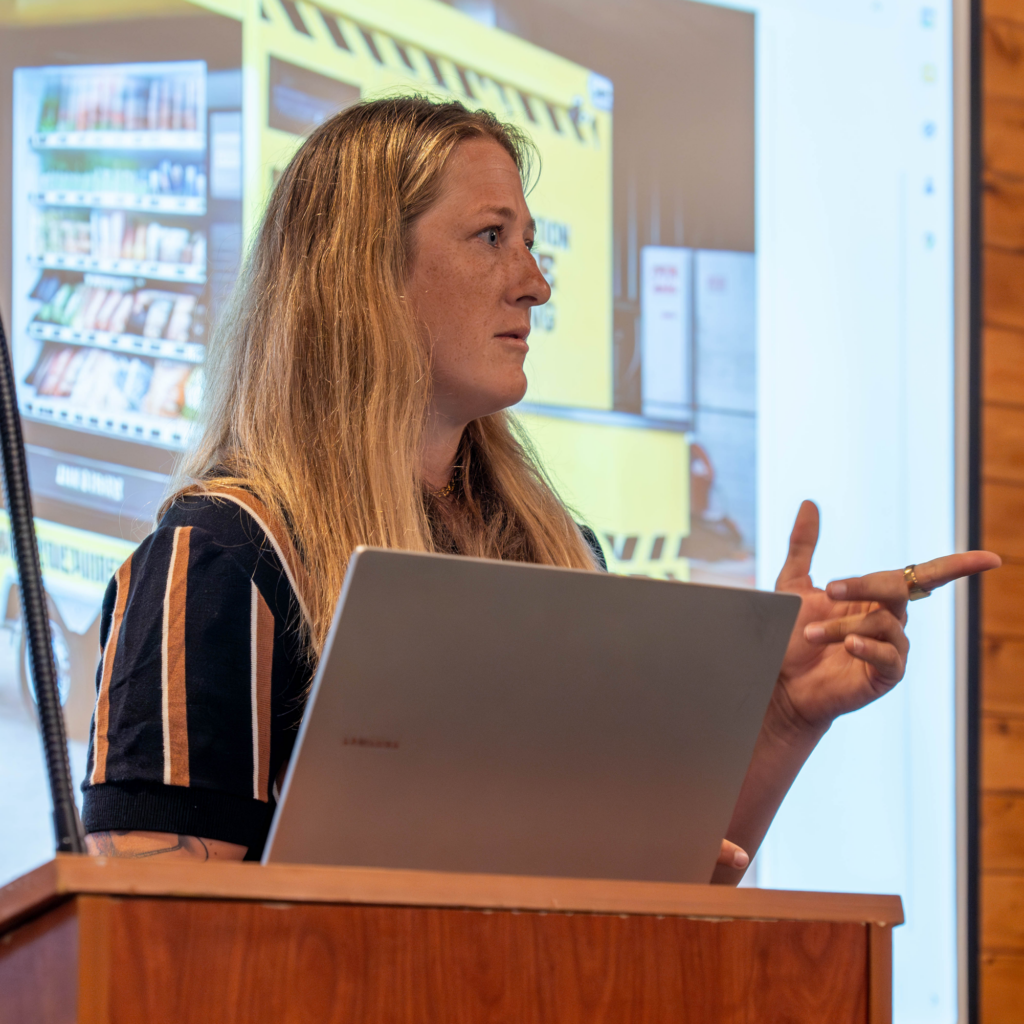
Friendly Vending Service –Dawna Davis, Founder
Dawna Davis, founder of Friendly Vending Service, launched a mobile vending supplier focused on providing nutritional supplements to job sites. Davis noted that workers experience energy depletion similar to that of ultramarathoners or triathletes but often lack access to the same snacks and drinks to maintain performance. Friendly Vending Service aims to fill that gap by offering convenient, health-focused options for the workforce. “
“The problem I am trying to solve is construction site fatigue…it’s a 13 billion dollar loss to our industry. If you are in the middle of a project and you lose an essential electrician, plumber, drywaller or insulators–it could hold up a project for months.” – Dawna Davis
Curbio
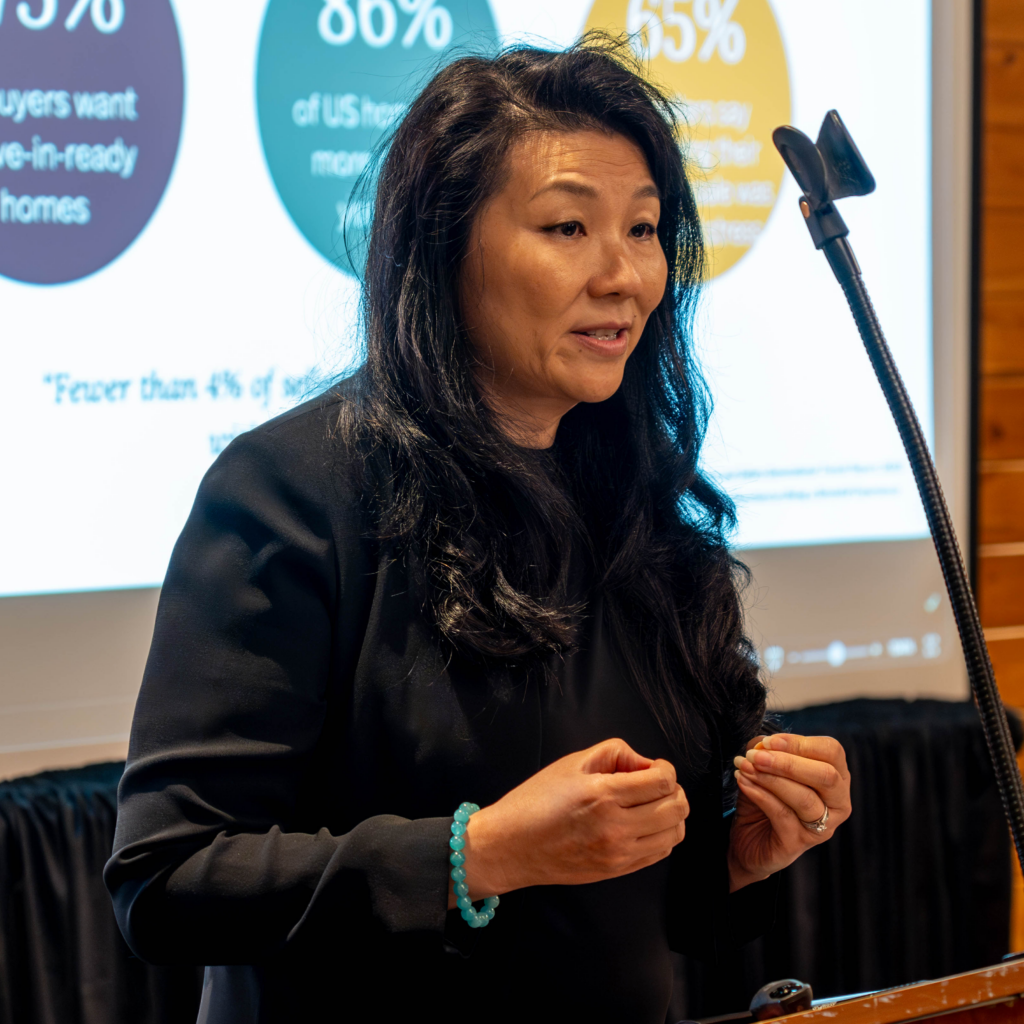
Curbio – Grace Mase, VP of Design and Construction
Grace Mase, vice president of design and construction at Curbio, is focused on addressing inefficiencies in the presale home improvement sector. Curbio analyzes market trends and historical data to tailor home improvements to specific regions, ensuring projects align with what buyers are seeking. It offers services like staging and painting to help real estate agents get homes market-ready, with no upfront cost to sellers who only pay after the house is sold.
“We leverage technology to bridge a gap between the supply of the inventory in the market, the home condition, the demand and what the home buyers are looking for to make sure there is great synergy between the two.” – Grace Mase
Edison Motors
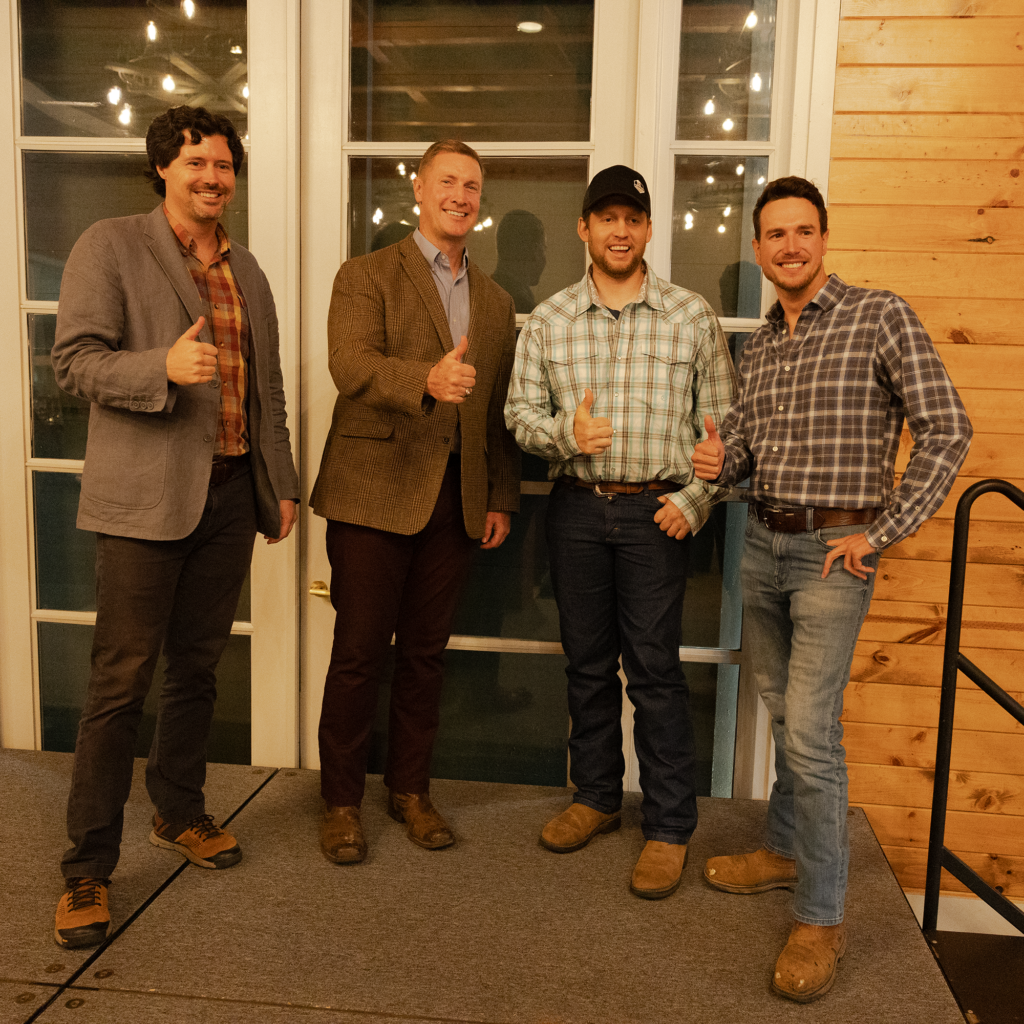
Edison Motors –Chace Barber, CEO
1st Place – $10,000
Edison Motors, founded by Chace Barber and Eric Little in 2016, initially focused on hauling logs, mining equipment and drilling rigs across Canada using their trucking company and a 1969 Kenworth truck. Combining their expertise in classic truck remanufacturing with advanced off-grid hybrid technology, Edison Motors aims to produce a robust, reliable and serviceable electric truck that excels in efficiency and power.
“On our first haul, we pulled 100,000 pounds, pulling a tank no less. From there, we went through and we actually were able to get this truck past all of the required safety inspections, it’s now licensed and it’s on the road.” – Eric Little and Chace Barber
IONIC RENTALS
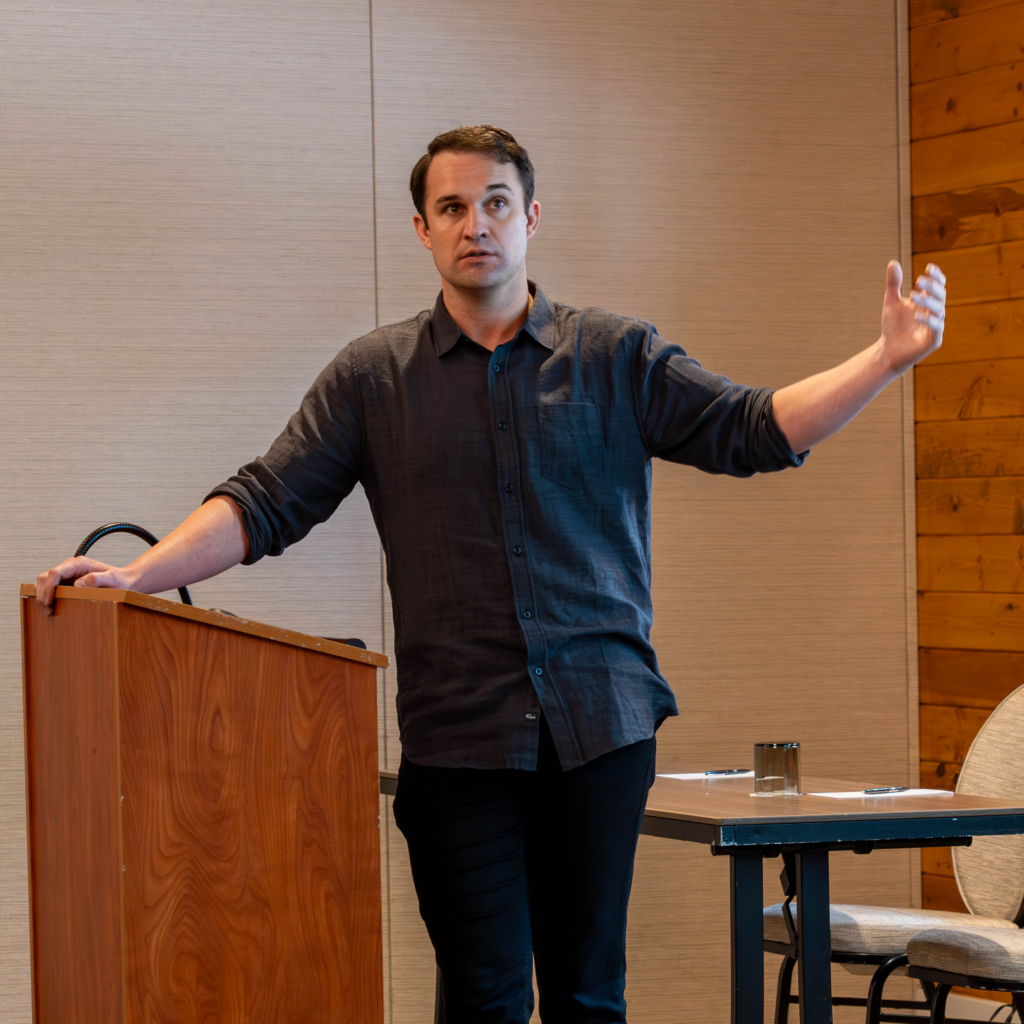
IONIC RENTALS –Eli Borton, Founder, CEO
Eli Borton, founder and CEO of Iconic Rentals, specializes in manufacturing and renting hybrid generators and solar-powered security cameras. Iconic Rentals focuses on reducing costs and emissions while enhancing users’ peace of mind through its innovative rental solutions.
“We want to make it as easy as possible. You can log into the app, track your generator consumption, turn it on and off—you can even schedule it. So if you want to get to work and have your generator on, you can set it to turn on at seven and turn off at five, making it simple for everybody.” – Eli Borton
Rugged Robotics
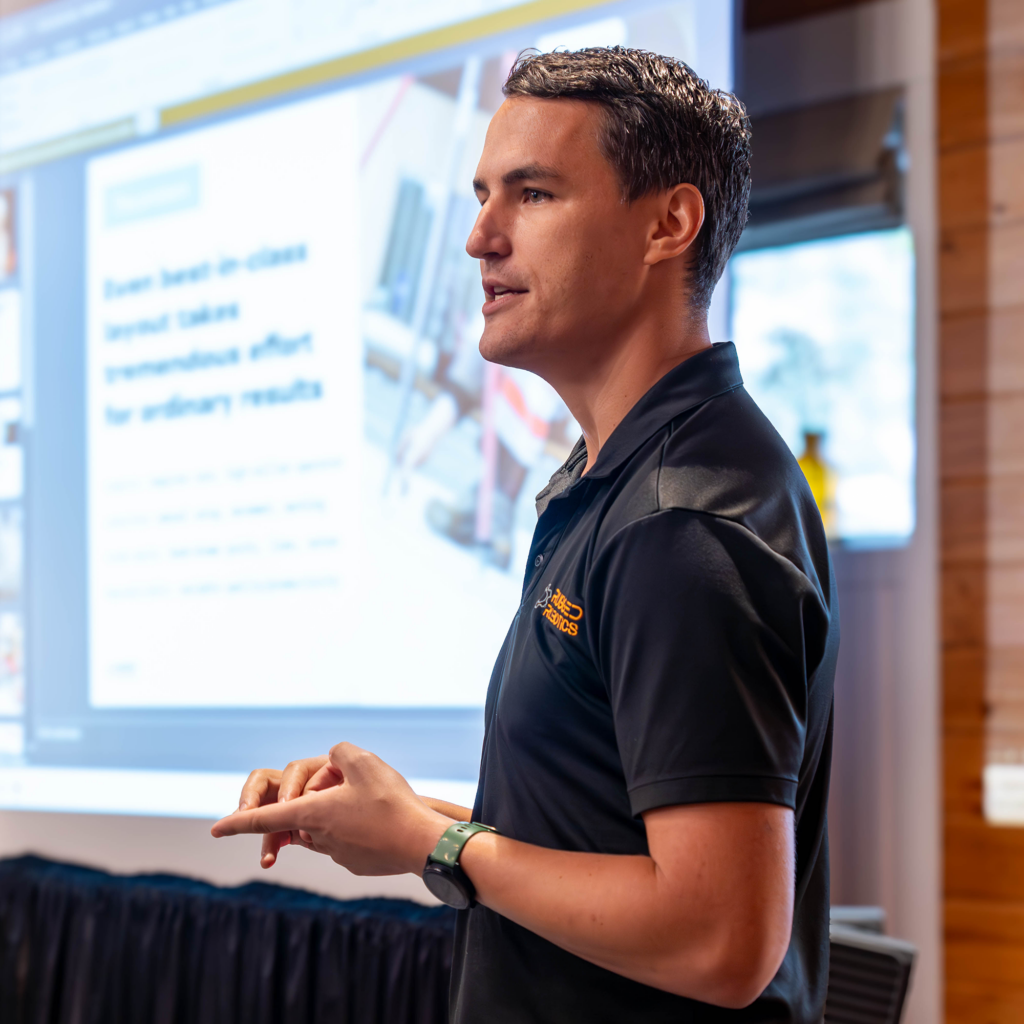
Rugged Robotics – Logan Farrell, CTO
3rd Place – $5,000
Rugged Robotics, based in Houston, Texas, works on blending construction and robotics expertise to address practical challenges faced by construction crews. The company focuses on delivering real-world, solution-oriented innovations for the construction industry.
“We built this robot that prints exactly what should be built on the ground, directly onto the ground, the live blueprints.” – Logan Farrell
X-Hab 3D

X-Hab 3D – Dr. Sven Bilén, Co-Founder and Lead, Systems Engineering
X-Hab 3D, founded by Bruce Kraselsky, Nate Watson, Sven Bilén, José Duarte and Shadi Nazarian, is dedicated to advancing industries through robotic additive concrete manufacturing systems. Their mission focuses on delivering sustainable, affordable and customized concrete products to enhance profitability, enable buyers and improve the human condition. Originating from a need to address rural housing challenges in Alaska, X-Hab 3D stands at the forefront of innovation in 3D concrete printing.
“The future that we are building at X-Hab 3D is focused on autonomous construction. Some of the first applications that we are doing are in the areas of 3D printing concrete printing.” – Dr. Sven Bilén
Terran Robotics

Terran Robotics – Zach Dwiel, CEO
2nd Place – $7,500
Terran Robotics is building affordable and sustainable homes with artificial intelligence and robotics. They use a cable-driven platform that scales to the building site.
“Our mission is to directly reduce the cost of residential construction. To do this, residential construction generally takes about 50 percent of the cost of the materials and 50 percent of the labor. If you are going to reduce those costs, you have to address both of them.” –Zach Dwiel
Browse additional photos with our Flickr photo album.

